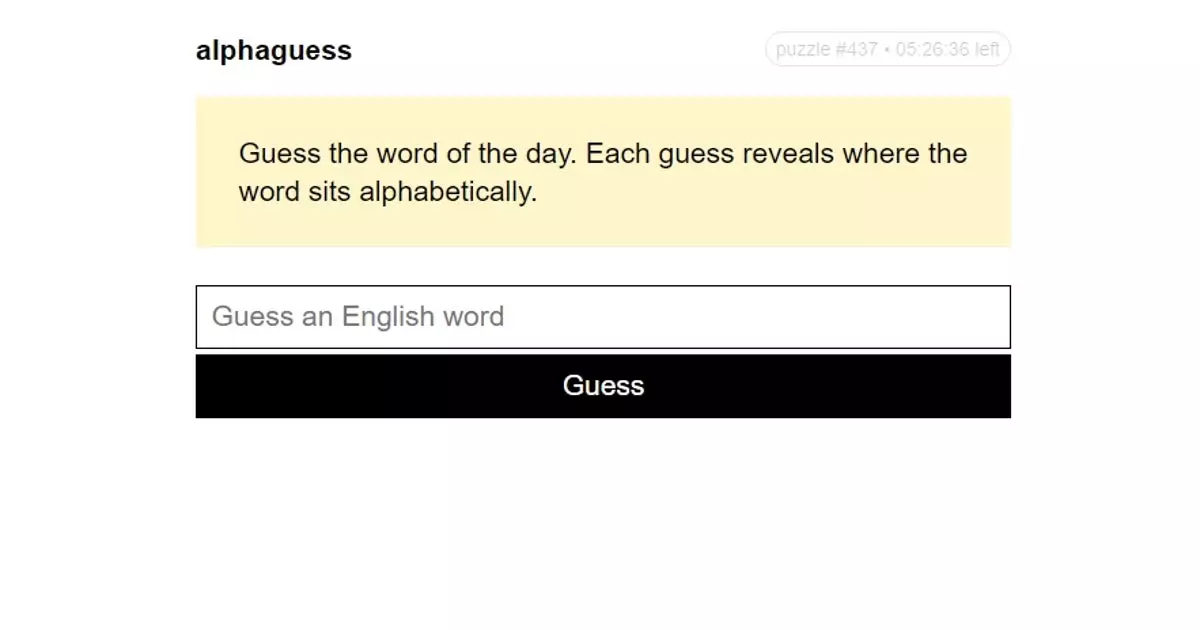In an era where productivity is continuously challenged by digital distractions, puzzle games emerge as both a distraction and a light-hearted break. One such game is Alphaguess, a browser-based challenge that requires players to guess a hidden word with alphabetically guided hints. While simplicity underpins its design, the game holds a compelling pull that invites players to engage their minds, albeit for just a few moments in the day.
Alphaguess operates on a straightforward premise: players must deduce a word from a set of possibilities based on hints about its alphabetical placement. After each guess, feedback is given regarding whether the correct answer comes before or after the guessed word in the alphabet. This mechanic leads to an interesting strategic layer—players must carefully choose their guesses to narrow down the possibilities effectively. While it’s true that some may find the challenge elementary in comparison to other puzzle games, the methodical process of elimination taps into a primal instinct for problem-solving.
Reflecting on my personal experience, I attempted to discover today’s word and, regrettably, stretched my guess count to 26 over an eight-minute span. It’s moments like these that juxtapose frustration with fleeting amusement. I initially guessed “muddle,” aiming for a middle-ground entry to balance the potential options on either end of the alphabet. Yet, despite identifying certain letters correctly, I found myself ensnared in confusion. It’s almost comical how easily one can become tangled in their line of thought, only to step back and realize they are lost in a tangle of letters.
The relatability of such moments is significant. Many players likely resonate with the feelings of both clarity and confusion, making the game more than just a mundane task; it becomes a shared experience among friends, attempting to one-up each other in speed and knowledge.
Despite their simplicity, games like Alphaguess and Wordle foster a sense of community among players. Sharing results or strategies with friends adds a social layer not often seen with more solitary gaming experiences. This communal interaction creates a shared narrative—an odd companionship forming through shared struggles as one person triumphs while another grapples with their cognitive blocks.
Additionally, the trivial pursuit represented in these games elicits a sense of nostalgia, akin to childhood car games that demanded no more than attentive observation and quick thinking. This recalls a purer form of entertainment, where the objective was not solely to win, but to enjoy the ride with friends.
Interestingly, the rise of these simple games signals a broader trend in digital entertainment. As noted in Caroline Crampton’s newsletter, there’s a surge in demand for accessible yet engaging experiences. These games do not complexify our interactions; rather, they distill entertainment down to momentary engagement, allowing for a necessary mental breather in our often overwhelming digital lives.
While Alphaguess and its ilk may superficially appear simplistic, they encapsulate vital elements of fun, competition, and shared experience. Embracing such games can provide not only a moment of relaxation but a bridge to deeper connections with others.


Leave a Reply